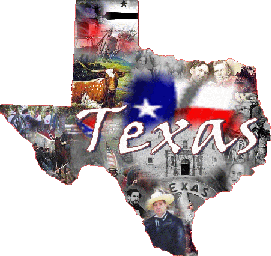


Brief History of Castro's Colony



With the declaration of Texian
Independence, March 2nd, 1836, all prior colonial grants and
contracts with Mexico or the State of Coahuila and Texas ceased.
Really and practically they ceased on the 13th of November, 1836,
by a decree of the first revolutionary assembly, known as the
consultation, which, as a preventive measure against frauds and
villainy, wisely and honestly closed all land office business
until a permanent government could be organized. Hence, as a
historical fact, the colonial contracts of Stephen F. Austin,
Austin & Williams, Sterling C. Robertson, Green De Witt,
Martin DeLeon, Power & Hewetson and McMullen & McGloin
ceased on the 13th of November, 1835 The concessions to David G.
Burnet, Joseph Vehlein and Lorenzo de Zavala, previously
transferred to a New York syndicate, known as the New York and
Galveston Bay Company, of which Archibald Hotchkiss, of
Nacogdoches, was made resident agent, and which, in reality,
accomplished little or nothing, also expired by the decree of the
13th of November, 1835.
The Republic was born March 2, 1836, and for the five succeeding years, until February 4th, 1841, in the last year of Lamar's administration, there was no law authorizing colonial contracts. But on the last named day a law was passed authorizing the President, under conditions set forth, to enter into contracts for the colonization of wild lands in Northwest and Southwest Texas. That act was amended January 1st, 1843.
President Lamar entered into a contract for what became known as Peters Colony, in North Texas, August 30, 1841, which was altered November 20, 1841, and, by President Houston, on the 26th of July, 1842, Houston having succeeded Lamar as President. Under this law, besides the Peters Colony, already granted, President Houston made grants to Henry F. Fisher and Burchard Miller, for what afterwards became known as the German Colony, which did much to populate the beautiful mountain country drained by the Perdernales, Llano and San Saba rivers.
On the 15th of January, 1842, Henry Castro entered into a contract with President Houston for settling a colony west of the Medina, to continue for five years, the eastern boundary being four miles west of the Medina and cutting him off from that beautiful stream; but he bought from private parties the lands on it and thereby made the Medina his eastern boundary. At the same time President Houston appointed Mr. Castro Texian Consul General to France.
Who was Henry Castro? He was an educated and accomplished Frenchman, bearing a Spanish name, and was rightfully Henri de Castro. Owing to the invasion of Texas in 1842 and other obstacles, on the 25th of December, 1844, after he had brought over seven hundred immigrants, on seven different ships, chartered at his own cost, his contract was prolonged for three years from its original period of termination - a just and honorable concession by Texas to one of such approved zeal and energy.
A volume of interest could be written descriptive of the efforts of Mr. Castro to settle his colony, then exposed to the attacks of bandit and guerrilla Mexicans but a little to its west, and to all the hostile Indians north and west of his proposed settlement. He hurried to France and besides his official and personal affairs, did great service in aiding Gen. James Hamilton, the Texian minister, in popularizing the cause of Texas in France. He encountered great obstacles, as the French government was using immense efforts to encourage migration to its colony in Algiers; but on the 13th of November, 1842, he dispatched the ship, Ebro, from Havre with 113 immigrants for Texas. Soon afterwards the ships Lyons, from Havre, and the Louis Philippe, from Dunkirk, followed with immigrants, accompanied by the Abbe Menitrier. These were followed from Antwerp on the 25th of October, 1843, by the ship, Jeane Key; and on May 4th by the Jeanette Marie. The seven ships named brought over seven hundred colonists. In all, in thirty-seven ships, he introduced into Texas over five thousand immigrants, farmers, orchardists and vine-growers, chiefly from the Rhenish provinces, an excellent class of industrious, law-abiding people, whose deeds " do follow them" in the beautiful gardens, fields and homes in Medina and the contiguous counties on the west.
On the 3d of September, 1844, after many delays, the heroic Castro, at the head of the first party to arrive on the ground, formally inaugurated his colony as a living fact. A town was laid out on the west bank of the Medina, and by the unanimous vote of the colonists, named Castroville. It was a bold step, confronting dangers unknown to the first American colonists in 1822, for besides hostile savages, now accustomed to the use of fire arms, it challenged inroads from the whole Rio Grande Mexican frontier, which, in 1822 furnished friends and not enemies to foreign settlement in Texas. It was doing what both Spanish and Mexican power had failed to do in 153 years - 1692 to 1844 - since the first settlement at San Antonio. It was founding a permanent settlement of civilized, Christian men, between San Antonio and the Rio Grande, the settlements and towns on which, from Matamoros (Reynosa, Camargo, Mier, Guerrero, Larioredo, Dolores, San Fernando, Santa Rosa, Presidio del Rio Grande, Presidio del Norte), bristled in hostility to Texas and its people. It was an achievement entitling the name of Henri de Castro to be enrolled among the most prominent pioneers of civilization in modern times. Yet the youth of to-day, joyously and peacefully galloping over the beautiful and fertile hills and valleys he rescued from savagery, are largely ignorant of his great services.
The gallant Col. John. C. Hays, the big-hearted Col. George T. (Tom) Howard, John James, the surveyor, and, among others, the pure, warm-hearted and fatherly John M. Odin, the first Catholic Bishop of Texas, besides many generous hearted Americans, visited Castroville and bade godspeed to the new settlers from La Belle France and the Rhine. Bishop Odin (friend of my youth and of my mother's house), laid and blessed the corner-stone of the first house dedicated to the worship of God - a service rendered before the settlers had completed respectable huts to shelter their families. On his return from this mission the good bishop dined at my mother's house, and, though a Baptist, both by inheritance and forty-six years of membership, in the broader spirit of civilization and that spirit which embraces all true and pure hearts, regardless of party and creed, she congratulated him on the work he had done. But in fact every man, woman and child who knew Bishop Odin (0-deen) in those years of trials and sorrow in Texas, loved him, and sorrowed when he returned to and died in his native Lombardy.
Mr. Castro, soon after inaugurating his colony, was compelled to revisit France. He delivered a parting farewell to his people. On the 25th of November, 1844, to the number of fifty-three heads of families, they responded. Their address is before me. They say: " We take pleasure in acknowledging that since the first of September -the date at which we signed the process verbal of taking possession - you have treated us like a liberal and kind father. * * * Our best wishes accompany you on your voyage and we take this occasion to express to you our ardent desire to see you return soon among us, to continue to us your paternal protection." Signed by Leopold Mentrier, J. H. Burgeois, George Cupples, Jean Baptiste Lecomte, Joseph Weber, Michael Simon and forty-seven others.
The Indians sorely perplexed these exposed people. In the rear of one of their first immigrating parties, the Indians, forty miles below San Antonio, attacked and burnt a wagon. The driver, an American, rifle in band, reached a thicket and killed several of them but they killed a boy of nineteen - a Frenchman - cut off his head and nailed it to a tree. In the burnt wagon was a trunk containing a considerable amount of gold and silver. In the ashes the silver was found melted - the gold only blackened. This was one of the first parties following the advance settlers.
In this enterprise Henry Castro expended of his personal means over one hundred and fifty thousand dollars. He fed his colonists for a year - furnished them milch cows, farming implements, seeds, medicines and whatever they needed. He was a father, dispensing blessings hitherto unknown in the colonization of Texas He was a learned, wise and humane man, unappreciated by many, because he was modest and in nowise self-asserting, and his tastes were literary. He was a devoted friend of Presidents Lamar, Houston and Jones, all of whom were his friends and did all in their power, each during his term, to advance his great and patriotic idea of planting permanent civilization in South-west Texas. He was a devout believer in the capacity of intelligent men for self-government, and abhorred despotism as illustrated in the kingly governments of Europe-the rule of nations by succession in particular families regardless of sense, honor or capacity. He believed with Jefferson, in the God-given right of every association of men, whether in commonwealth, nations or empires, to select their own officers, and, by chosen representatives, to make their own laws. Hence he was, in every sense, a valuable accession to the infant Republic of Texas.
When war raged and our ports were closed, Mr. Castro sought to visit the land of his birth, and, to that end, reached Monterey in Mexico. There he sickened and died, and there, at the base of the Sierra Madre, his remains repose.
Excerpt from "Indian Wars and Pioneers of Texas"
Return to William Hesskew's Page
Return to Family Surnames Index
This page has been accessed
times since 1/2001